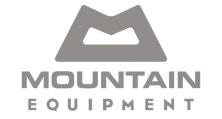Tracking
the Journey
-
Distance to go:
0 Mi
Distance
Ben and Tarka will cover 1800 miles starting from Scott's Terra Nova Hut at the edge of Antarctica to the South Pole and back to the coast again. That's equivalent to 69 back-to-back marathons hauling up to 200kg each (the weight of roughly two adult men) of kit and supplies necessary to survive.
Distances here are shown in statute miles.
Resupply (Day 70)

I'm sorry to have kept you waiting for this update; you might have seen from the tracker that we haven't moved for a while, and you may be wondering what's up. For more than a decade I've been trying to get to the start line of this expedition, and for more than a decade I've been talking about how it would be a journey that was at the very limits of human endurance. Today, in hindsight, I wonder if I really appreciated how prescient and accurate that glib statement was, and yet how little I knew about where that journey would lead me, and what it would take for Tarka and me to dig so deep.
Part of the appeal of this expedition to me was that it seemed just about possible. Roger Mear, one of Robert Swan's team that completed Scott's one-way journey to the Pole in the mid-eighties said they didn't entertain the thought of unsupported return journey as it was plainly "impossible" to haul enough food and fuel. Both Scott and Shackleton, of course, had pre-positioned depots the year before their Pole attempts, and then had further teams hauling provisions for them all the way to the Plateau, peeling away one by one like booster rockets falling back to earth. Scott himself didn't put his own sledge harness on until he got to the base of the Beardmore Glacier, and at most his men pulled just over 90kg each.
By contrast, Tarka and I pulled 200kg each at the start, heavier loads per man than Scott's weakest two ponies each dragged. Peter McDowell, one of the senior directors of ALE, described it as "Fifty percent harder" than anything he had seen in his time supporting Antarctic expeditions. We gambled on getting faster as our loads lightened, and based on our training and experience, Tarka and I had secretly set ourselves the goal of covering 42km -a full marathon- per day on our return from the Pole to the Beardmore. We planned our food and fuel to match, going light and -we hoped- fast, with almost no leeway for error or a let-up in pace. This is why we did such a big day to turn at the Pole, and why we've had no time to rest properly since. We had two-and-a-half hours' sleep on our Pole day, and haven't had more than five hour's sleep for nearly two months. Our only full rest day was 55 days ago. The toll this effort has taken has been quite something, and the speed we hoped for never came.
Our near-empty sledges still felt heavy and the energy that carried us up the Beardmore, and indeed to the Pole itself in record time despite dragging more than anyone in history, started to wane dramatically in the last few days. What's more, we've been running lower on food as we failed to meet our mileage targets. Six days ago we started to eat half rations, and I've felt shattered every day since, aware that I was depleting my body at a rate that might have been reckless. My stomach growled permanently, my ribs became more prominent by the day, my legs were painfully weak and my mind and thoughts and decision-making grew foggy and dim. On our second day of half-rations I got dangerously cold when I had to remove my outer jacket in the middle of a storm to add more insulating layers, and it was only Tarka's help -zipping up my jackets like I was a toddler while my cold hands hung useless by my side- that got me out of trouble and through a very dark day indeed.
I've been reluctant to say so (sorry mum!) but we've both been on the ragged edge for a while now, and on New Year's Eve, we set out on what was to prove the hardest day of the expedition. It was Tarka's turn this time to struggle, and I'd reached a state where I was barely able to realise it. The windchill was -45 degrees centigrade when I recorded it, and we stayed outside for more than 13 hours, on fifty percent of the food I'd intended and wearing almost all the clothes we had with us. At breaks we would eat halved energy bars and our normally-sweet drinks tasted like lukewarm dishwater with a hint of lemon. Towards the eighth or ninth hour Tarka's normally rock-steady metronomic pace started to become erratic and he seemed to stagger and stumble more than usual on ridges and divots in the snow surface. He stopped mid-session, in a howling blizzard, to remove his outer gilet (the Primaloft-insulated Mountain Equipment Compressor vests that have served us so well here) and flipped back his hood as if he were too hot. I know -as a professional leader of expeditions to the coldest places on the planet- that these are tell-tale signs of hypothermia, yet I was on the limit myself and failed to react. All I can remember from that afternoon that drifted into evening, with the dim sun slowly wheeling around us and the horizon erasing itself and reappearing again in the whirling fog of spindrift, was being unable to think of anything more than the battle raging in my head against the part of me that wanted so desperately to stop. Just to lean my shoulders on my ski poles and slump forwards against the resistance of my harness and rest, and to hell with the consequences. I wondered at times if I fell over whether I'd have the strength to stand up again, the energy to yell for Tarka, or whether he'd even notice me calling over the noise of the wind.
When I took over the lead I kept turning back to see Tarka -normally right on my heels- drifting further behind me. I stopped a few times to let him catch up, but it was too cold for me to wait for more than a minute or two before I started shivering, so I raised a single ski pole, he raised his in reply -a signal we've often used here- and I shuffled on. After doing this a few times, with Tarka receding as if the horizon was sucking him backward like quicksand, he stopped raising his pole. I waited, but by now he was a tiny dark speck in the white that took forever to grow. I unclipped my harness and started to put the tent up, feeling dizzy and breathless myself, and taking what seemed like ages to match the poles to their corresponding fabric sleeves, like a drunk taking some sort of coordination test. "Sorry I'm late", said Tarka as he arrived, but it sounded like someone else entirely, his words mumbled and slow.
As we finished slowly setting up camp, I saw he was fumbling in his giant outer mittens with the plastic buckles that strap our sledges closed. "I can't feel my hands", he said through a mask encrusted with ice, his shoulders slumped forwards. As we zipped ourselves into the porch of the tent to take our boots and outer layers off before climbing into our sleeping bags, we saw that the tips of his thumbs were at least badly frostnipped, if not lost entirely to frostbite. I remember feeling a mixture of fear and anger, both at him and at myself for letting this happen. I pulled up my jacket and fleece so he could warm his hands in my armpits, and to my relief the colour and circulation started to return. We ate our watery half-dinners in near-silence and fell asleep exhausted and cold, knowing we would have to match the same distance the next day.
Our depot was still 74km away and we had barely more than half a day's food to reach it; eight energy bars each, half a breakfast and half an evening meal. 16km into the following day Tarka started to slow again as he led, before stopping entirely and waving me forward to talk. "I feel really weak in the legs again", he said. "OK. What do you want to do?" I answered snappily, before realising this was on me. I came here to be challenged and tested, to give my all to the hardest task I have ever set myself and to the biggest dream I have ever had. And here was the crux. This was the moment that mattered, not standing by the Pole having my photograph taken, but standing next to my friend, in a howling gale, miles away from anyone or anything. "Let's put the tent up", I said, "I've got an idea".
My idea was to call for a resupply. To have more food and fuel flown to our position so that we could rest and recover before finishing this journey. A decision that changes the status of this expedition from "unsupported" or "unassisted" or whatever semantics you wish to choose to the opposite. Part of me also feels it inevitable that we and this journey would face critics even if we'd done it in period clothing eating pemmican and pony meat. Yet in an instant I realised that my and Tarka's lives are not something I wanted to gamble with, and that we had given our all. We were lucky that neither of us had collapsed the day before, and I knew we couldn't possibly have hoped to recover on our meagre rations from the physical holes we'd dug ourselves into.
At the other end of the world, on the other end of a crackling and hissing satellite phone line, our expedition manager Andy Ward sprang into action, and things happened incredibly quickly, with a ski-plane carrying eight days' of rations landing twelve hours later. The weather worsened as we waited and I feared the flight would be aborted, or that a bag would be air-dropped at speed and lost in the blizzard, but in a beautiful twist of what some might call fate, the pilot was Troy, the same man that picked me up from the Arctic Ocean after my 72-day solo expedition nearly ten years ago, and in my eyes the finest polar pilot in the world. The Twin Otter appeared through a tiny hole in the rolling cloud and swang over us once before landing on the ridged and uneven snow surface and taxiing right up to our tent, its wing-tip almost above our roof. The wind was still blasting and the plane's skis were almost hidden under the blowing snow. "I'm sorry about the weather", I said to Troy, amazed that he'd been able to land. "Oh, it was fine", he replied modestly.
The hours we spent waiting were, I fear, dark ones for Tarka. He seemed a broken man. "It'll look like my fault", he said, "and that's a good thing for you." This was Tarka through and through. Weeks ago he said humbly, "If there are media at the airport when we get back, I'm happy to help with the bags while you talk to them." He finally admitted last night that when I was struggling (and if I'm honest now, on the verge of wanting to quit) a few weeks ago he'd taken food bags from my sledge while I was in the tent to help lighten my load without telling me, so he'd been pulling more weight than me for weeks.
Tarka is the hero here, and the irony of our situation is that I would never have made it to this point without his herculean efforts; his giving everything he has to this goal. I'm proud of how deep we have each dug, and I am amazed and humbled by Tarka's sacrifice. He has pushed (or indeed pulled) himself until he dropped, and I'm also as exhausted as I've ever been. For weeks now I have slept fitfully and woken up cold. We are both alarmingly lean, and we have both struggled for a while to maintain trains of thought or decent conversations. I suspect my writing has been going downhill too.
And now we are lying here resting, like two new men after ten hours' sleep, full-bellied and warm again for the first time in weeks, before we move north again to complete this unfinished journey. Our status has changed, but how little that means to me now. Scott didn't wear his harness until the Beardmore and would have been "supported" in modern polar parlance. I don't think we made any mistakes, and I don't think we could have done anything more, or pulled any more food up here. We travelled 5.6km per day at the start with 200kg per man, greater loads than each of Scott's weakest ponies hauled.
I know a few commentators have suggested that we've been "lucky" with weather and surface compared to a century ago, but I don't believe this is true. Our luck is in having GPS units that allow us to ski blind into whiteouts, in having synthetic skins on our skis that allow us to grip, and in having the nutrition and fitness and clothing to survive dragging loads that would have been unthinkable in that era. We have had no choice but to move every day, whatever the weather, for more than 70 hours per week of intense physical exertion, twice as much as a Tour de France cyclist, over ten weeks and not three.
Now my head is clearer and my body is recovering, I think of status and records and achievement and impermanence. Every gold medal one day ends up in a collectors' cabinet, an auction lot or a drawer in an antique shop. Trophies oxidise, the ribbons of rosettes curl and fade. I don't know where my proudly-won Scout badges are now. I hope our journey has not been diminished in your eyes now it is "imperfect". Yet of course for us humans, perfection can never really be reached, contentment is either here today, with the striving and the mess we all inhabit, all open loops and half-finished lists and could-do-better-next-times, or we will never find it. And the biggest lessons -to me at least- of this very long, very hard walk, are perhaps that compassion is more important than glory. Friendship and kindness and taking care of each other -like Tarka secretly removing weight from my sledge- matter more than achievement or status. The joy of being outdoors and alive in the wild, pushing ourselves harder than anyone will ever understand, will I think in time prove more wholesome and satisfying than the pride of any public recognition on our homecoming.
We're resting up today, we're safe, we're well, we'll do a shorter day north towards our mid-plateau depot tomorrow and we'll carry on home from there, retracing our steps to Ross Island. We're still in the process of making a journey that's never been done before, and I hope you'll still keep following. Tarka and I are humbled and grateful for your interest and support, and I am more thankful than I know how to say for Intel and Land Rover and all of our other partners for standing by us in our most trying days. Onwards.










Comments
# Ripley Davenport, January 2nd 2014
Good call. I stand and applaud you both.
“It is not the critic who counts; not the man who points out how the strong man stumbles, or where the doer of deeds could have done them better. The credit belongs to the man who is actually in the arena, whose face is marred by dust and sweat and blood; who strives valiantly; who errs, who comes short again and again, because there is no effort without error and shortcoming; but who does actually strive to do the deeds; who knows great enthusiasms, the great devotions; who spends himself in a worthy cause; who at the best knows in the end the triumph of high achievement, and who at the worst, if he fails, at least fails while daring greatly, so that his place shall never be with those cold and timid souls who neither know victory nor defeat.”
― Theodore Roosevelt
Stand tall guys. Stand proud.
# Ben Thackwray, January 2nd 2014
Stay safe, great effort, enjoy the rest of your time.
# Erin K., January 2nd 2014
Tears. I’ve been following your journey for several+ years now, and not once have I ever been anything but amazed by your strength, character, and perseverance. Difficult moments (or an avalanche of difficult moments) happen, and it’s how you face them and deal with them that are the true test of one’s character and self. And when you are honest, and authentic, and do the right thing, that’s what matters. Friendship is what matters. And perhaps, all along, this is what the Scott Expedition, after 10 years of planning has really (partially, of course!) been about: you finding the right team, and that one person (Tarka), to show yourselves but also all of us, not only what the body is capable of, but the mind, spirit, and soul. I feel that years from now, perhaps you’ll be more proud of the fact that you made THIS decision, now, then you will have felt if you had found a way to complete this journey unsupported. I’ve been sharing your journey with my 6-yo son who is more thrilled by the idea of visiting Antarctica than anyplace else (Africa a close second), and I will be most proud to share this day with him to show him that friendship (and common sense) is truly what matters most. Thank you, Ben and Tarka and the entire team (and sponsors) for sharing this with us. Sending a million fist bumps your way.
# Abel Blancas Morán, January 2nd 2014
The expedition you are doing goes beyond a title and a facebook/newspaper image of you in the South Pole.
All my respect and admiration. We will keep on following not only until you are back at the base but also the next expeditions to come.
Following live from Mexico City.
# Luke Hull, January 2nd 2014
I felt something was up when there was no blog this morning, my daily ritual these past few months of catching up on your progress over breakfast was today disrupted and left me with a feeling of nervousness all day. So it’s great to hear that you are comparatively well and despite the huge disappointment you must be feeling, I’m sure everyone especially your families must be hugely relieved that at that moment you bravely stopped and put the tent up you possibly saved both of your lives.A similar decision that had to be made by Shackleton all those years ago!
So nothing has changed for me and your progress will still be the first thing on my mind when I wake tomorrow morning.
Chin up and best wishes for the rest of your journey.
# Andy Lawrence, January 2nd 2014
The only sensible call you could make. It was a bold decision to go without a reserve and that didn’t pay off but continuing this expedition to the end is what you started out to do. This is not defeat but it is a warning. Stay safe, finish the job and well done.
And @#Kristoffer, feel free to try it yourself
# Bobby Saunders, January 2nd 2014
I am thankful for the choice you made, Ben. You and Tarka are withstanding unimaginable conditions and reaching if not surpassing the limits of human condition. In this endeavor, your experience and wisdom has won the day, and very likely saved life and limb. I am relieved to read that you both are safe, rested, and ready to resume. Press on. Finish strong.
# Richard Pierce, January 2nd 2014
Dear Ben, dear Tarka,
A few years ago, I and some friends were discussing the possibility of completing Scott’s journey, and when we came to looking at the details, decided it would mean 18 months away from family and friends because we would have to spend one winter laying depots before making the journey itself. That was one of the main reasons we never moved forwards on the plans. And, just for the sake of honesty, I should explain that I volunteered to act as support at Scott Base rather than even venturing into the heavy-duty depot-laying or, God forbid, doing the trip myself (I was 49 then, but even so, my nicotine and alcohol consumption has increased since then rather than decreased).
The purpose of that first paragraph is to say this - that your journey now becomes the journey that Scott made, because you could have had those rations dropped by plane before your march or have laid a depot yourselves. What people choose to forget is that Scott used the best technology and equipment he knew of in his day to make the trip, and so, similarly, did Amundsen.
When no blog appeared this morning and you hadn’t moved, I immediately worried that something drastic might have gone wrong. I am so pleased that you both are ok, though not so pleased that you and Tarka have gone through feelings of guilt on top of the physical pain you’ve been enduring.
For me, the status of the expedition hasn’t changed. For me, when you get back to the hut at Cape Evans, and you will get back there in one piece, you will have achieved what no-one has achieved before, and you will have completed a journey which first began on 1st November 1911.
And when you get back to the hut, maybe you’ll recognise and remember some of this:
“I imagine the door opening and some windswept, frosty-bearded explorer walking in as if he’d just returned from the south. I can hear them tramping to the front door on that first day in November 1911, ready to start out on their trek. I see them looking back into the long room, marking down all they wanted to remember, a final picture of home before the desolation and the cold of the march. I sense the hope with which they left here. Their story is imprinted on these wooden walls, on these shelves, bunk beds and floors. It speaks of unfulfilled hope and tragic destinies, not of human vanity. These were honest men, men of endeavour, regardless of their skills, capabilities and brittle personalities.”
From Dead Men - http://www.amazon.co.uk/Dead-Men-Richard-Pierce-ebook/dp/B007FR3UXU
And then, dear Ben and dear Tarka, you will realise that you will have fulfilled their hopes, that the spirits which still wander Cape Evans will welcome you with open arms, and with thanks for showing the world that the journey can be made, can be completed, and that a race that was never there for the winning has now finally been run.
God Speed.
R
# Richard Pierce, January 2nd 2014
CORRECTION - I meant “one summer” depot-laying, of course, plus one summer for the journey itself. Apols. R
# Kristoffer, January 2nd 2014
Marvelous post Richard. 8-)
# Intrepid, January 2nd 2014
Dear Richard, Your last paragraph has brought me into tears for the second time. I share the same sentiments and thank you for expressing what has unleashed itself from so deeply inside.
# Richard Pierce, January 2nd 2014
Thanks Kristoffer and Intrepid. :-) R
# Mal Owen, January 2nd 2014
Once again Richard you have expressed the thoughts of the majority with such eloquence.
# Richard Pierce, January 3rd 2014
Malcolm,
You are too kind.
R
# Mal Owen, January 3rd 2014
Dear Richard,
Mal = female and therefore not Malcolm ... ..A mistake many before you have made !
Not to worry :-) Lol
# Richard Pierce, January 3rd 2014
Mal,
I’m mortified.
Sorry.
R
# Ann Pagel, January 2nd 2014
Nothing is more important than your safety. I am so glad that you are both okay and getting the rest and refueling that you need. Be safe, you two.
# Jamie Ross, January 2nd 2014
“In any moment of decision, the best thing you can do is the right thing, the next best thing is the wrong thing, and the worst thing you can do is nothing”
Theodore Roosevelt.
# Deacon Patrick, January 2nd 2014
One question I have for the support team or after Ben and Tarka return is what were the reasons for not using pemmican as a mainstay or even only food? Hearty grass-fed tallow contains so much of the energy and nutrition needed in cold endurance activities. 2 2/3 pounds = 8,000 calories (not sure how that compares to the weight of their current day’s supply, but also not all calories are created equal). 266 pounds for 100 days’ food/person is not bad.
# Scott Expedition Team, January 5th 2014
Hi Deacon. Food must be long life or freeze-dried to stay in date for the four month duration of the expedition. Pemmican doesn’t provide the same nutritional balance that Ben and Tarka consume through the high calorie, and in particular high carbohydrate rations including freeze dried food, energy bars and hot energy drinks they’ve taken.
# bev jackson, January 2nd 2014
This has moved me to tears. Don’t ever feel that you have to justify your decision to anyone, you have done absolutely the right thing for you. We all know how it ended for Scott and he had far more support what with dogs, horses and men. You are both heroes, take a good rest and a few good feeds and then carry on doing what you have been doing so well .